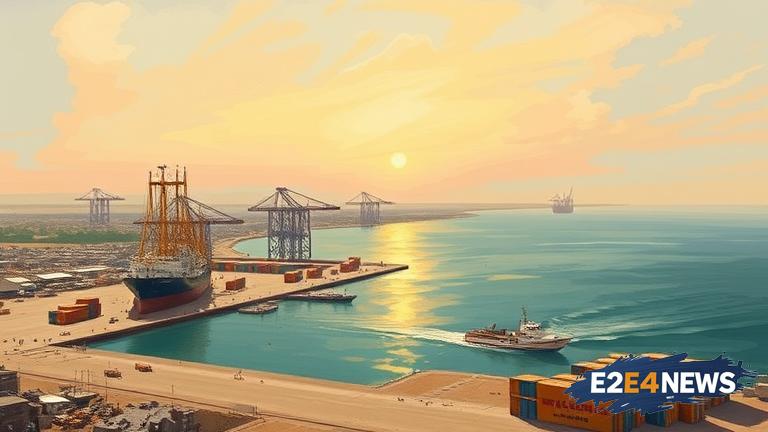The Berbera Port, located in the self-declared state of Somaliland, is rapidly emerging as a vital anchor for African trade and security. With its strategic location on the Gulf of Aden, the port is well-positioned to facilitate the exchange of goods and services between Europe, Asia, and Africa. The port’s growing infrastructure, including the recent expansion of its container terminal, is expected to increase its capacity to handle large volumes of cargo. This, in turn, is likely to attract more international trade and investment to the region. Somaliland’s stable security environment, compared to other countries in the region, is also a major draw for investors and traders. The Berbera Port is already handling a significant volume of cargo, including livestock, food, and construction materials. The port’s proximity to the Suez Canal and its location near the Bab-el-Mandeb Strait, a critical chokepoint for international shipping, makes it an attractive option for traders and shipping companies. The development of the Berbera Port is also expected to have a positive impact on the local economy, creating jobs and stimulating economic growth. The port’s expansion is being driven by a combination of public and private investment, including funding from the United Arab Emirates and other international partners. The Somaliland government has also implemented a range of policies and regulations to support the growth of the port and the wider economy. These include measures to improve the business environment, enhance security, and increase transparency. The Berbera Port is also expected to play a critical role in regional trade and security initiatives, including the African Continental Free Trade Area (AfCFTA) and the Djibouti Code of Conduct. The port’s growth is also likely to have a positive impact on the environment, with plans to develop renewable energy sources and reduce carbon emissions. However, there are also challenges to be addressed, including the need for further investment in infrastructure and the potential risks associated with climate change. Despite these challenges, the Berbera Port is well-placed to become a major hub for African trade and security, with its strategic location, growing infrastructure, and stable security environment. The port’s development is also expected to have a positive impact on the wider region, promoting economic growth, stability, and cooperation. In conclusion, the Berbera Port is a critical component of Somaliland’s economy and a key player in regional trade and security initiatives. Its growth and development are expected to have a positive impact on the local economy, the environment, and the wider region. With its strategic location, growing infrastructure, and stable security environment, the Berbera Port is poised to become a major hub for African trade and security. The port’s expansion is also expected to attract more international trade and investment to the region, creating jobs and stimulating economic growth. Furthermore, the Berbera Port’s development is likely to promote economic cooperation and stability in the region, with its participation in regional trade and security initiatives. Additionally, the port’s growth is expected to have a positive impact on the environment, with plans to develop renewable energy sources and reduce carbon emissions. Overall, the Berbera Port is a vital anchor for African trade and security, and its development is expected to have a positive impact on the local economy, the environment, and the wider region.
